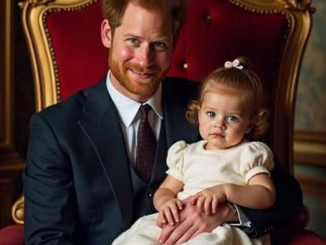In a shocking turn of events that has shaken the boxing world, Imane Khelif, a boxer once celebrated as one of the greatest and most promising talents of his generation, has been placed under a life ban by the World Boxing Organization (WBO). The decision was preceded by extensive investigations that resulted in the WBO recognizing Khelif as biologically male, despite his identification and career in the female category. As a result, all medals and titles have been revoked from him, including his Olympic gold medal and the prize money associated with his performance of $25 million.

The drama began after months of investigation after biological tests and gender reviews raised concerns. Khelif, who has won numerous world championships and become a symbol of the rise of women in martial arts, saw her image and career completely turned upside down by the inauguration. The sport’s umbrella organization decided to ban her from competitions permanently after concluding that her biological gender did not meet the participation criteria for female athletes, according to WBO rules.

In a statement, the WBO explained its position: “After extensive examinations and consultations with medical experts, it has been found that Imane Khelif does not meet the biological criteria for participation in women’s boxing according to WBO rules. Therefore, we have no choice but to recognize all titles, medals and financial gains.” The decision resulted in the loss of her $25 million prize, which was awarded for her outstanding achievements and her pioneering role in women’s boxing.
The news sent shockwaves through the boxing world, with both supportive and critical reactions coming from all sides. Many emphasize the drama of the decision and believe it could mark a major turning point in the sport’s handling of transgender and non-binary athletes. Others believe the WBO acted on its rules because it was concerned about biological criteria being met.

Imane Khelif has yet to comment publicly, but sources close to the athlete have indicated that he is considering challenging the decision in court. Many of Khelif’s supporters are angry about the decision, describing the WBO as discriminatory and backward. In their view, the move highlights the injustice of the current system, which does not sufficiently take into account the complexity of gender issues in sport.
On the other hand, there are also voices that think that there should be clear and precise rules in boxes regarding the participation criteria to ensure absolute fairness between female and male athletes. WBO supporters emphasize that the definition of clearly defined biological criteria is of crucial importance in order to avoid abuses and ambiguities in competitions.

The case also raises questions about the inclusion of transgender and non-binary athletes in international sports competitions. With the global growth of transgender movements, more and more voices are being raised demanding that major sports organizations review their strategies to better accommodate the diversity of today’s society. Others argue that the integrity of sports competitions should not be jeopardized by decisions that do not respect biological criteria and the rules of the discipline.

However, the impact of this decision is not limited to boxing. The debate over gender roles in sport now extends to all disciplines, from football to athletics, with political issues and transgender rights issues playing an increasingly important role. This situation could serve as a precedent for other sports associations that are likely to face a similar dilemma in the future.
While Khelif is likely bracing himself for a legal challenge to secure his titles and reputation, the topic of equality and inclusion in sports remains as topical as ever. This case could mark a turning point in the treatment of transgender and non-binary athletes across global sports associations, and it seems that the end of this defining debate is not yet in sight.


